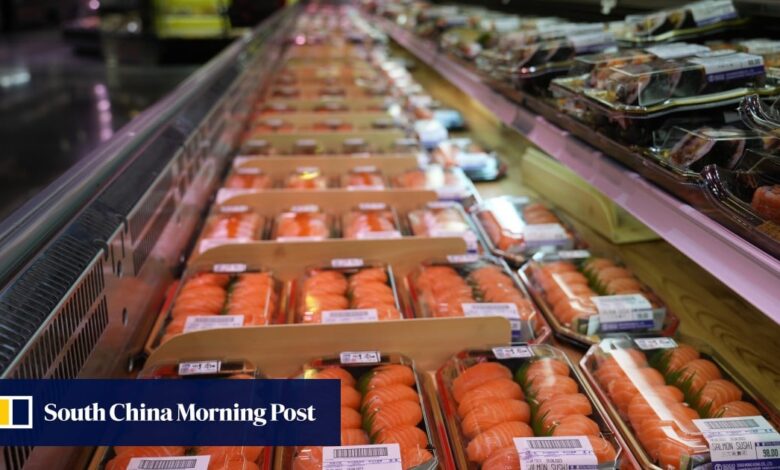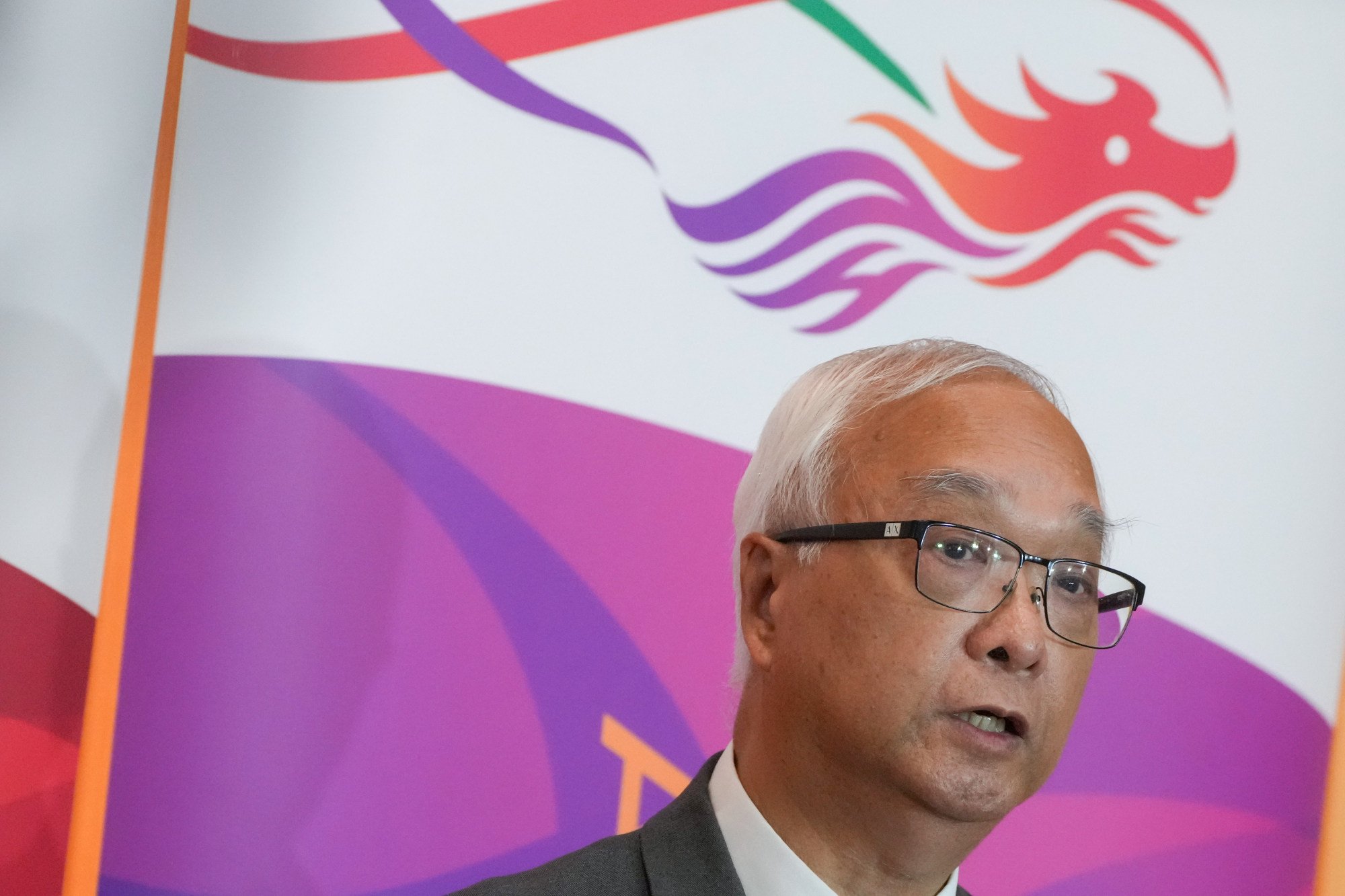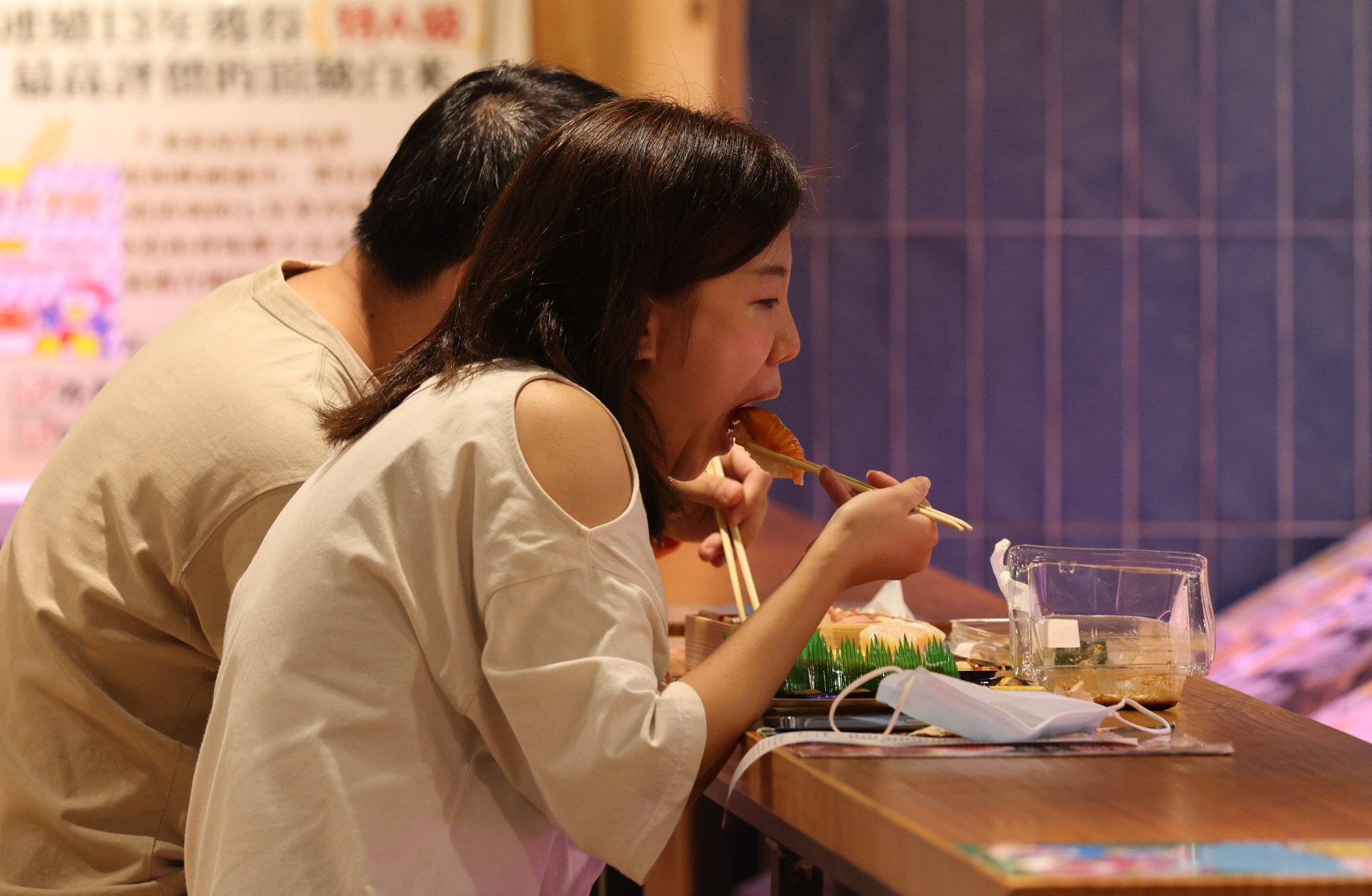Fukushima waste water: no room for Hong Kong to ease ban on Japanese seafood, environment chief says before second round of discharge

[ad_1]
There is no room for Hong Kong to ease a ban on Japanese seafood imports, the city’s environment minister has said a day before a second round of waste water discharge from the crippled Fukushima nuclear plant.
“If the Japanese government continues to release the nuclear waste water tomorrow, we would have no choice but to continue to ban seafood imports from 10 prefectures in Japan, to ensure public health and food safety,” Secretary for Environment and Ecology Tse Chin-wan on Wednesday said.
“If Japan does not stop the discharge, or find a better way to ensure public safety, there is no room to relax the ban … The ball is in their court.”

Hong Kong banned seafood imports from 10 Japanese prefectures on August 24, when the country began releasing 1.34 million tonnes of treated nuclear waste water into the Pacific Ocean.
The discharge was part of the decommissioning of the Fukushima nuclear plant, which was severely damaged during an earthquake and tsunami in 2011.
The first release of 7,800 tonnes of waste water was completed on September 11, with the second round set for Thursday.
Hong Kong’s Japanese seafood ban sees eateries flounder amid customer fears
Hong Kong’s Japanese seafood ban sees eateries flounder amid customer fears
The ban imposed by Hong Kong covers all fresh, frozen, chilled, dried or processed seafood, sea salt and seaweed from Tokyo, Fukushima, Chiba, Tochigi, Ibaraki, Gunma, Miyagi, Niigata, Nagano and Saitama, with testing for all Japanese seafood products ramped up.
Macau and mainland China have imposed wider-reaching bans.

Japan’s action has triggered a scientific debate over food safety and heightened political tensions in the region following the bans.
Analysts said the country’s lack of transparency about its data, doubts over the effectiveness of its filtration processes and public misinformation on nuclear technology only worsened matters.
Japan insisted it had not been irresponsible, saying it decided to release the treated waste water after years of careful monitoring.
Hong Kong unlikely to extend seafood ban beyond 10 Japanese prefectures: minister
Hong Kong unlikely to extend seafood ban beyond 10 Japanese prefectures: minister
Speaking to the press on Wednesday, Tse said local authorities had requested to send experts to Japan to conduct tests, but Tokyo did not respond.
He added that additional testing in place for the imports did not affect the time required for customs clearance.
Tse said some import cases might have taken longer because of the size of the shipment and lack of information provided.
Hong Kong ban on Japanese seafood to remain in place until products proved safe
Hong Kong ban on Japanese seafood to remain in place until products proved safe
“We always recommend that importers leave their goods at the cold warehouse at the airport, because it operates all day for free, but some were worried this would affect their turn to get checked … but that is not true,” he said, referring to fears that testing could delay clearance.
“We will also deploy manpower flexibly according to the amount of imports, but in general we do not see any impact on the customs clearance procedure.”
[ad_2]
Source link





